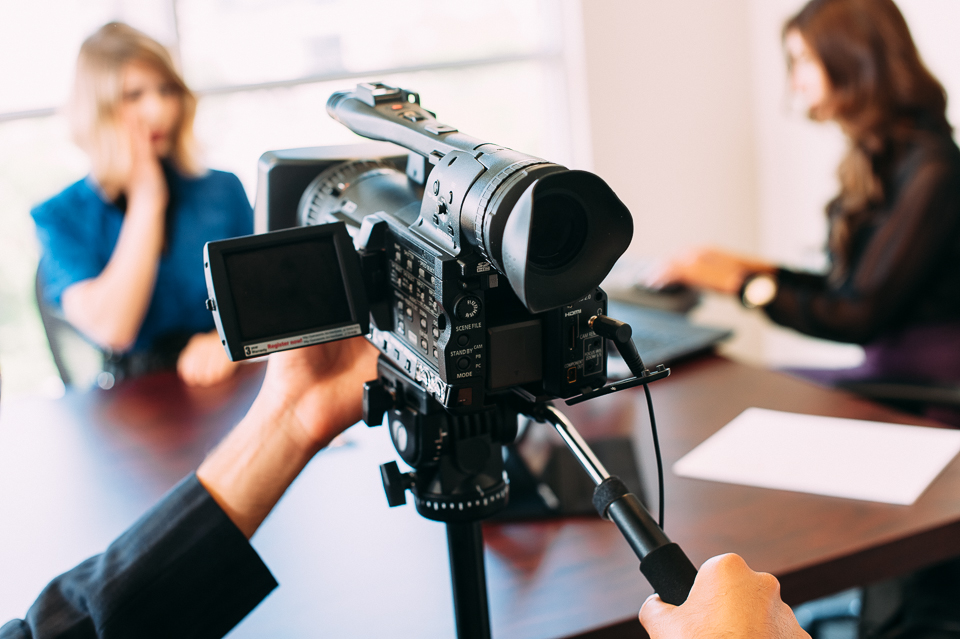The Function of Lawful Videography in Depositions and Tests
Legal videography has actually arised as a necessary tool in both depositions and tests, giving a complex approach to documenting witness testaments. As lawful experts increasingly identify its worth, it prompts a much deeper examination of just how these visual documents can influence juror perceptions and trial outcomes.

Importance of Legal Videography
Legal videography plays a critical role in the documentation and discussion of depositions and tests. This customized field integrates technical abilities with legal understanding to produce a trustworthy record of procedures that can substantially influence situation end results. The appearance of legal videography enhances the understanding of witness testimony, permitting jurors and judges to observe not just the spoken words yet additionally the attitude, feelings, and body language of the witnesses.
Furthermore, lawful videography supplies an objective account of occasions, reducing the capacity for misconception that can accompany created transcripts alone. This aesthetic paperwork works as a critical device during trial presentations, assisting in a more clear and more influential story for both plaintiffs and offenders. The capacity to replay video clip segments during court proceedings allows lawful teams to emphasize vital factors, reinforcing their debates effectively.
The relevance of legal videography prolongs past the court room; it likewise plays a vital duty in protecting evidence for future reference, whether for allures or more lawsuit. Its combination into the lawful procedure is vital for making sure a reasonable and accurate representation of the facts, ultimately adding to the search of justice.

Refine of Legal Videography
While capturing the nuances of depositions and tests, the procedure of legal videography involves numerous vital steps that make certain high-quality, accurate recordings. A professional lawful videographer prepares by evaluating the case materials and recognizing the certain demands of the deposition or trial. This prep work includes acquainting themselves with the individuals and the context, which helps in catching essential details.
On the day of the recording, the videographer establishes up the needed equipment, which typically includes high-def electronic cameras, microphones, and proper lighting. Guaranteeing optimal angles and audio high quality is critical, as it directly influences the efficiency of the recording. The videographer communicates with lawyers and participants to establish protocols, ensuring that everyone recognizes the recording process.
During the deposition or trial, the videographer diligently tape-records the process, paying attention to both spoken and non-verbal signs. This includes recording the attitude and responses of witnesses and lawyers. After the session concludes, the videographer might modify the footage for clearness and compliance with legal criteria, producing an end product that accurately shows the proceedings for future recommendation and usage in lawful contexts.
Advantages in Depositions
The incorporation of videography in depositions provides numerous benefits that boost the general process of gathering proof. One key advantage is the ability to record witness testaments with visual and auditory integrity, giving a much more accurate representation of the witness's temperament, tone, and body movement. This multidimensional technique permits lawyers and courts to analyze integrity better than standard written transcripts find here alone.
Additionally, videographed depositions offer as a powerful tool for protecting statement. Ought to a witness ended up being unavailable for test, their tape-recorded deposition can be played in court, making sure that their proof continues to be obtainable and pertinent. This facet substantially lowers the risk of shedding crucial details that might influence situation end results.

Last but not least, videography boosts the overall professionalism and reliability of the deposition procedure, instilling confidence in clients regarding the thoroughness of their lawful representation (legal videography). By leveraging technology, attorneys can dramatically enhance the performance of depositions
Influence on Tests
In lots of trials, the integration of videography can dramatically affect the discussion of evidence and the jury's assumption. Lawful videography captures witness testimonies and critical proof in a vibrant style, enabling jurors to involve with the product on multiple levels. This aesthetic component boosts the storytelling aspect of a trial, giving context and emotional resonance that standard text-based evidence might lack.
Furthermore, video recordings can serve as powerful devices for impeachment during cross-examination. When disparities develop between a witness's previous statements and their court room statement, video clip proof provides an unbiased reference that can guide jurors' opinions. This immediacy and quality can boost the integrity of a party's story while concurrently undermining opposing disagreements.

Future Trends in Legal Videography
As we look towards the future of lawful videography, numerous emerging trends promise to improve its duty within the court room. One substantial fad is the assimilation of artificial intelligence (AI) in video clip evaluation and editing and enhancing. AI can simplify the procedure of determining crucial moments in tape-recorded depositions, allowing attorneys to rapidly access appropriate content, thus enhancing efficiency in case prep work.
In see page addition, the increase of online reality (VIRTUAL REALITY) and boosted fact (AR) technologies is expected to transform how jurors experience evidence. legal videography. By immersing jurors in a simulated environment, these technologies can offer a much more extensive understanding of intricate circumstances, resulting in even more enlightened considerations
In addition, the boosting need for remote depositions, sped up by the COVID-19 pandemic, will likely proceed. Lawful videographers will certainly require to adjust to new software application and systems to make certain high-quality recordings in online settings.
Lastly, the growing emphasis on data security will certainly demand stricter protocols for storing and sharing video clip proof. As the lawful landscape evolves, lawful videographers need to remain abreast of these patterns to maintain their importance and efficiency in the judicial process.
Verdict
In recap, lawful videography offers an important feature in the judicial procedure, boosting the integrity of depositions and trials. As innovation proceeds to advance, legal videography is poised to additional change its role within the legal landscape.